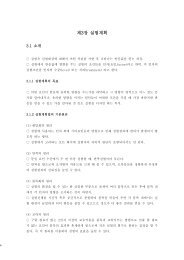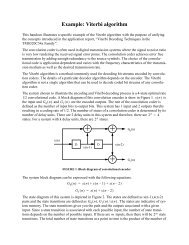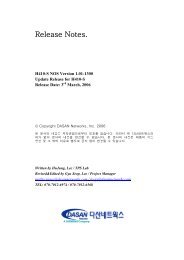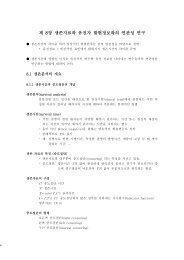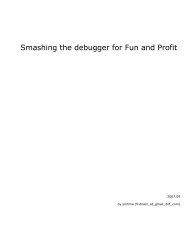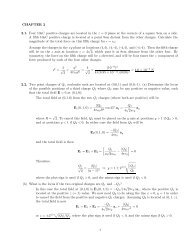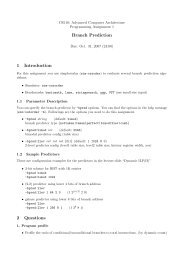"Teaching Smart People How to Learn," by Chris Argyris
"Teaching Smart People How to Learn," by Chris Argyris
"Teaching Smart People How to Learn," by Chris Argyris
- No tags were found...
You also want an ePaper? Increase the reach of your titles
YUMPU automatically turns print PDFs into web optimized ePapers that Google loves.
<strong>Teaching</strong> <strong>Smart</strong> <strong>People</strong> <strong>How</strong> <strong>to</strong> <strong>Learn</strong> · ARGYRIS8The very success of professionalsat education helps explain theproblems they have with learning.What’s more, most theories-in-use rest on the same set of governing values. Thereseems <strong>to</strong> be a universal human tendency <strong>to</strong> design one’s actions consistently according<strong>to</strong> four basic values:1. To remain in unilateral control;2. To maximize ‘‘winning’’ and minimize ‘‘losing’’;3. To suppress negative feelings; and4. To be as ‘‘rational’’ as possible —<strong>by</strong> which people mean dening clear objectives andevaluating their behavior in terms of whether or not they have achieved them.The purpose of all these values is <strong>to</strong> avoid embarrassment or threat, feeling vulnerableor incompetent. In this respect, the master program that most people use is profoundlydefensive. Defensive reasoning encourages individuals <strong>to</strong> keep private the premises, inferences,and conclusions that shape their behavior and <strong>to</strong> avoid testing them in a trulyindependent, objective fashion.Because the attributions that go in<strong>to</strong> defensive reasoning are never really tested, it isa closed loop, remarkably impervious <strong>to</strong> conicting points of view. The inevitable response<strong>to</strong> the observation that somebody is reasoning defensively is yet more defensivereasoning. With the case team, for example, whenever anyone pointed out the professionals’defensive behavior <strong>to</strong> them, their initial reaction was <strong>to</strong> look for the cause insomebody else—clients who were so sensitive that they would have been alienated if theconsultants had criticized them or a manager so weak that he couldn’t have taken it hadthe consultants raised their concerns with him. In other words, the case team membersonce again denied their own responsibility <strong>by</strong> externalizing the problem and putting it onsomeone else.In such situations, the simple act of encouraging more open inquiry is often attacked<strong>by</strong> others as ‘‘intimidating.’’ Those who do the attacking deal with their feelings aboutpossibly being wrong <strong>by</strong> blaming the more open individual for arousing these feelingsand upsetting them.Needless <strong>to</strong> say, such a master program inevitably short-circuits learning. And for anumber of reasons unique <strong>to</strong> their psychology, well-educated professionals are especiallysusceptible <strong>to</strong> this.Nearly all the consultants I have studied have stellar academic records. Ironically,their very success at education helps explain the problems they have with learning. Beforethey enter the world of work, their lives are primarily full of successes, so they have rarelyexperienced the embarrassment and sense of threat that comes with failure. As a result,their defensive reasoning has rarely been activated. <strong>People</strong> who rarely experience failure,however, end up not knowing how <strong>to</strong> deal with it effectively. And this serves <strong>to</strong> reinforcethe normal human tendency <strong>to</strong> reason defensively.In a survey of several hundred young consultants at the organizations I have beenstudying, these professionals describe themselves as driven internally <strong>by</strong> an unrealisticallyhigh ideal of performance: ‘‘Pressure on the job is selfimposed.’’‘‘I must not only do a good job; I must also bethe best.’’ ‘‘<strong>People</strong> around here are very bright and hardworking;they are highly motivated <strong>to</strong> do an outstandingjob.’’ ‘‘Most of us want not only <strong>to</strong> succeed but also <strong>to</strong> doso at maximum speed.’’These consultants are always comparing themselveswith the best around them and constantly trying <strong>to</strong> bettertheir own performance. And yet they do not appreciate being required <strong>to</strong> compete openlywith each other. They feel it is somehow inhumane. They prefer <strong>to</strong> be the individualcontribu<strong>to</strong>r—what might be termed a ‘‘productive loner.’’Behind this high aspiration for success is an equally high fear of failure and a propensity<strong>to</strong> feel shame and guilt when they do fail <strong>to</strong> meet their high standards. ‘‘You mustavoid mistakes,’’ said one. ‘‘I hate making them. Many of us fear failure, whether weadmit it or not.’’To the extent that these consultants have experienced success in their lives, they havenot had <strong>to</strong> be concerned about failure and the attendant feelings of shame and guilt. But<strong>to</strong> exactly the same extent, they also have never developed the <strong>to</strong>lerance for feelings offailure or the skills <strong>to</strong> deal with these feelings. This in turn has led them not only <strong>to</strong> fearVolume 4, Number 2, REFLECTIONS




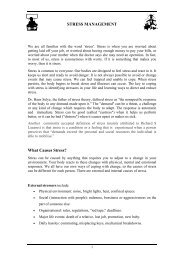

![Finale 2006 - [autumn leaves.MUS]](https://img.yumpu.com/46046993/1/184x260/finale-2006-autumn-leavesmus.jpg?quality=85)
